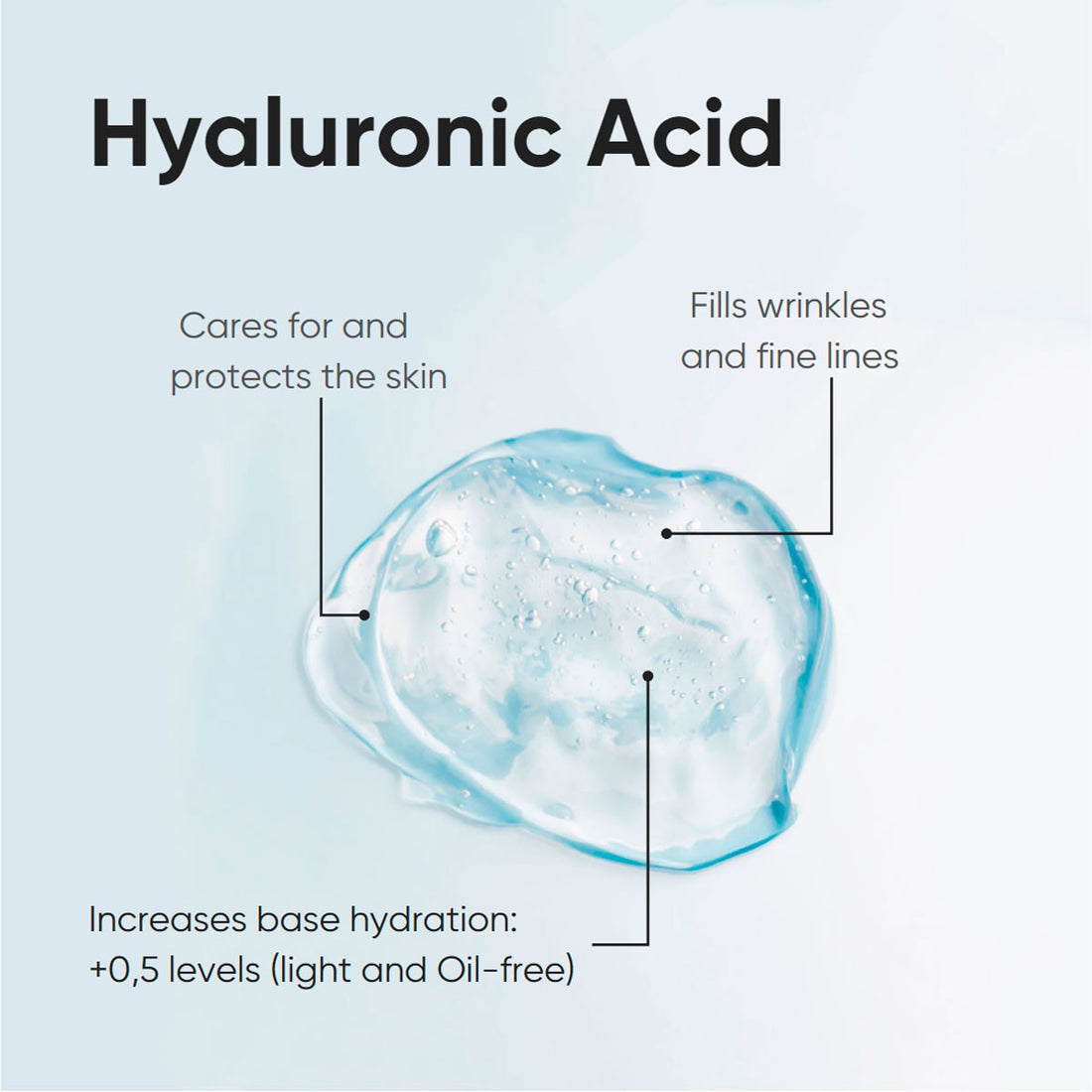
What Is Hyaluronic Acid and Why Is It So Popular?
Share
Introduction
Hyaluronic acid (HA), also known as hyaluronan, is a naturally occurring polysaccharide (a chain of sugar molecules) found in the human body. It exists abundantly in the skin, joints, eyes, and connective tissues.
Its importance lies in a few key properties:
-
It has a strong water-binding capacity, helping tissues stay hydrated and supple.
-
It plays a role in maintaining the extracellular matrix, which supports elasticity, volume, and firmness.
-
As we age, the body’s natural HA levels decrease, leading to dryness, fine lines, and loss of volume.
For these reasons, hyaluronic acid has become one of the most sought-after ingredients in both cosmetic and medical applications.
Benefits of Hyaluronic Acid
1. Skin Hydration and Plumpness
-
Clinical studies show that topical HA can significantly improve skin hydration. In one trial, HA-based serums increased moisture and reduced fine lines after six weeks.
-
“Ultra-light” HA formulations have also demonstrated effective hydration and rejuvenation benefits.
-
Its powerful ability to attract and retain water makes HA a key moisturizing ingredient.
2. Anti-Aging Effects
-
Studies show that HA may improve elasticity, smoothness, and volume in aging skin.
-
Oral supplementation with HA has been found to enhance skin moisture and reduce the appearance of wrinkles after 8–12 weeks.
3. Wound Healing and Tissue Repair
-
HA supports inflammation control, cell migration, and tissue regeneration, which can aid in wound healing.
-
It also plays a role in joint, eye, and surgical applications due to its structural support functions.
4. Joint and Medical Uses
-
HA injections are sometimes used to supplement joint fluid, especially in osteoarthritis treatment.
-
HA-based eye drops are used to relieve dryness and assist post-surgical recovery.
How to Use Hyaluronic Acid
Hyaluronic acid comes in many forms — serums, creams, injections, and supplements — and each has its own best practices:
-
Topical use (serums/creams):
-
Can be applied in the morning and/or evening on clean skin.
-
Works best on slightly damp skin, as it draws moisture from its surroundings.
-
Pairs well with ingredients like retinol or vitamin C — it soothes rather than irritates.
-
Note: High molecular weight HA may not penetrate deeply, so not all HA formulas provide the same effect.
-
-
Oral supplements:
-
Some studies suggest they can improve skin moisture from within.
-
Effectiveness depends on formulation, dosage, and individual factors — it should not replace medical advice.
-
-
Injections/medical use:
-
Should only be done by professionals.
-
Common in aesthetic fillers or joint treatments.
-
Side effects vary based on area and technique.
-
Limitations and Precautions
While HA offers many benefits, it’s not a miracle ingredient. Consider these factors:
-
Large HA molecules can remain on the skin’s surface rather than penetrate deeply.
-
Results depend on concentration, formulation, and usage consistency.
-
Oral or injected HA may not deliver quick results and might not suit everyone.
-
Possible side effects include redness, swelling, or bruising after injections.
-
Always check product quality, ingredient list, and proper storage conditions.
Summary and Practical Tips
-
Hyaluronic acid is a naturally hydrating molecule that keeps skin smooth and plump.
-
Regular use can visibly improve moisture and softness while slightly reducing fine lines.
-
However, results vary among individuals.
-
When choosing a product, look at molecular weight, concentration, and complementary ingredients.
-
For medical or supplement use, consult a dermatologist or healthcare provider first.
Conclusion
Hyaluronic acid can be a valuable part of your skincare routine — not as a miracle cure, but as a supportive element that enhances hydration and texture. With the right formulation and usage, it can help you achieve a healthier, more radiant complexion.
Sources
-
Cleveland Clinic. Hyaluronic Acid: What It Is, Benefits, How to Use & Side Effects.
https://my.clevelandclinic.org/health/articles/22915-hyaluronic-acid -
PMC. Benefits of Topical Hyaluronic Acid for Skin Quality and Signs of Skin Aging.
https://pmc.ncbi.nlm.nih.gov/articles/PMC10078143/ -
PMC. Advantages of Hyaluronic Acid and Its Combination with Other Cosmetic Actives.
https://pmc.ncbi.nlm.nih.gov/articles/PMC8347214/
-This article is written for informational purposes only, and the sources of inspiration are listed below !
